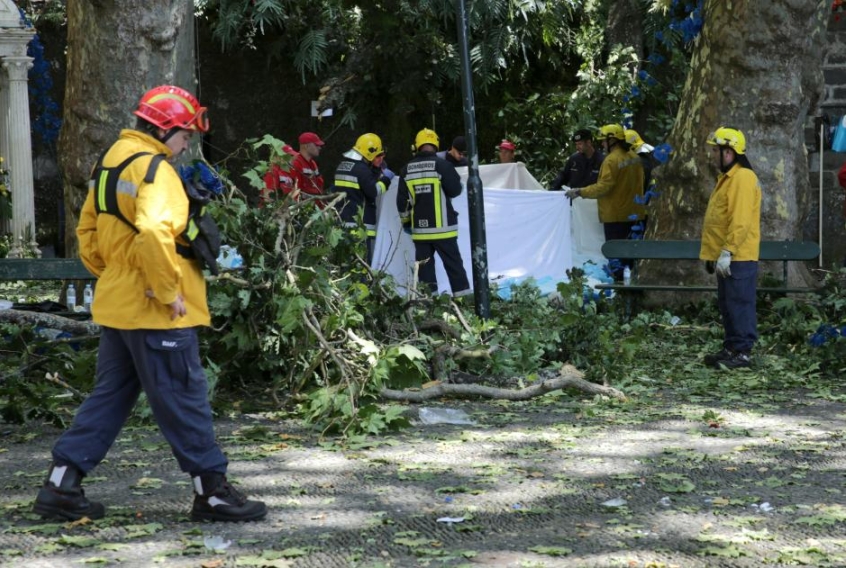
It's precisely the sort of tragedy to which atheists will regularly point. How could a loving God allow something like this to happen - even to the very people who are devoted to him? To some, horrible accidents like the one which took place on the island of Madeira this week offer a kind of emotive proof that a loving God surely cannot exist. But does that argument really stand up?
On Tuesday, in the island's main town, Funchal, a huge tree fell on crowds gathered for the Catholic Feast of the Assumption. Thirteen people were killed, including two children, while 49 others were taken to hospital with injuries. Reports suggest that the tree which collapsed during the celebrations was a 200-year-old oak which had previously been shored up because the trunk was hollow. Those who died had gathered in a square outside a church which includes a Catholic shrine; they died even as they worshipped.
The tragedy is evocative of similar stories involving Christians killed during acts of devotion. In December last year, an estimated 160 people died in Nigeria when a church building collapsed around them; in 2005, a beloved pastor was electrocuted during an incident in a baptismal pool. Each of these examples were tragic accidents – the first two would even be termed 'acts of God' in insurance terms – and theoretically, an interventionist God could have chosen to step in and prevent every one of them. There's no doubt that if God is all-powerful, he could catch a falling tree, or prop up a falling roof.
That he doesn't, an atheist might claim, is proof that he is neither all-loving or all-powerful. Yet I think the reverse is true. Because if God only stepped in to save the day when his followers were in trouble, what would the implication be on every accident that he didn't prevent? At that point his love would move from being unconditional to very much conditional; he'd no longer be the Father of all mankind, and instead be some sort of cosmic Superman, rushing around to save the chosen few. God did not step in to stop the mudslide in Sierra Leone or the factory collapse in Bangladesh; if he only stepped in to protect Christian worshippers, he'd be demonstrating the limits of both his love and his power.
One of the most unhelpful pieces of poster-quote pop-theology in our culture is the phrase 'God is in control.' He isn't – at least, not within the boundaries of this reality. When he gives humanity dominion over the earth in Genesis 1, God hands over the keys to us. He isn't orchestrating everything that happens on the earth, whether that's nations coming to the brink of war, individuals choosing to pursue good or evil, or natural disasters like this one.
That doesn't mean however, that God isn't heartbroken when tragedy strikes. The incarnation of Jesus, weeping over Lazarus' death in John 11 v 35, demonstrates how personally he feels a single person's pain. He's a God who understands suffering first-hand, and as each of these precious people were struck down, he is also wounded at the death of those he handmade in his image. He will now be the Great Comforter for those who mourn their loved ones, even as they perhaps ask why he didn't save in and help them. But he couldn't, you see. To have done so would actually have been profoundly unfair.
Martin Saunders is a Contributing Editor for Christian Today and the Deputy CEO of Youthscape. Follow him on Twitter @martinsaunders.













